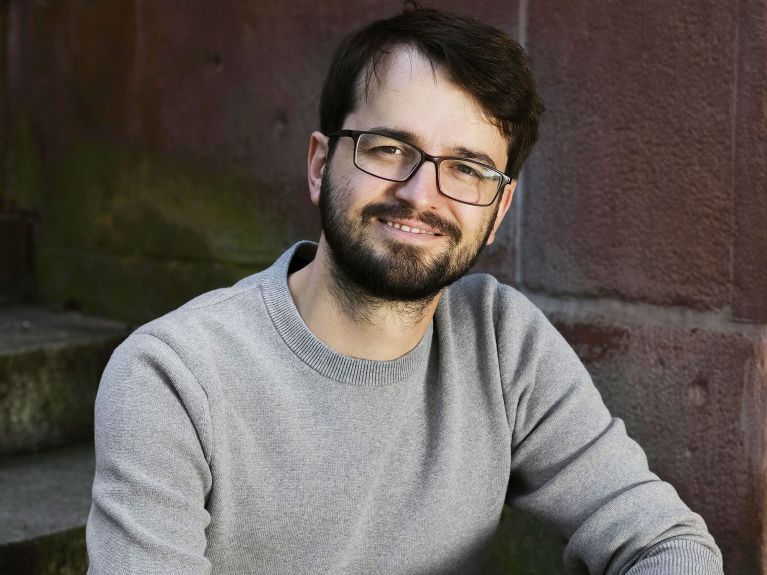"Make fact checks more widely available"
Political scientist Josef Holnburger explains how disinformation spreads and what can be done about fake news.

Together with Pia Lamberty, political scientist Josef Holnburger is on the board of the nonprofit Center for Monitoring, Analysis and Strategy (CeMAS), which deals with conspiracy ideologies, disinformation, anti-Semitism and right-wing extremism.
What is fake news, Mr Holnburger?
From a scientific perspective, we distinguish between misinformation and disinformation. For example, if a misquote is accidentally spread because someone wasn't listening properly, that's misinformation. Disinformation, by contrast, is deliberately disseminated false information, such as a quote that has been invented or deliberately placed in a false context. This is often referred to as fake news.
Has the danger from disinformation increased?
It's much easier to spread disinformation than it used to be. And this has also increased the danger. Spreading such information via emotionalization on social networks works frighteningly well. The major platforms in particular therefore need to have good rules to curb disinformation. This might mean limiting the reach of accounts or even blocking them. However, users must also be made aware of incorrect information with the help of fact checks.
Why do people believe obviously false claims?
People believe in disinformation because they want to believe it, because it corresponds with their political beliefs. There are conspiracy ideologues who can no longer be reached even by facts. These people even believe contradictory misinformation: so they might consider the coronavirus to be both a secretly developed bioweapon and a harmless flu virus at the same time.
What can be done about disinformation?
Above all, it's important to equip the environment of people who are susceptible to conspiracy ideologies with facts. Then they will still have access to these facts in the family or at work. We therefore need to make fact checks more widely available – via trade unions, churches or clubs. We must also support organizations like 'Veritas' or 'entschwört' ('de-conspire'), which advise people whose loved ones believe in conspiracy ideologies.
What basic tips can you give to avoid falling for disinformation?
We should know that highly emotionalized headlines or quotes often indicate disinformation. Images in particular can be very easily faked. If, for example, a politician is portrayed with a very distorted facial expression, the images have probably been manipulated. On the other hand, reports in established media in Germany are covered by good standards, which is why this information can, as a rule, be trusted. In social media, look for verified accounts that indicate whether the account really belongs to a person.
You would like to receive regular information about Germany? Subscribe here:

